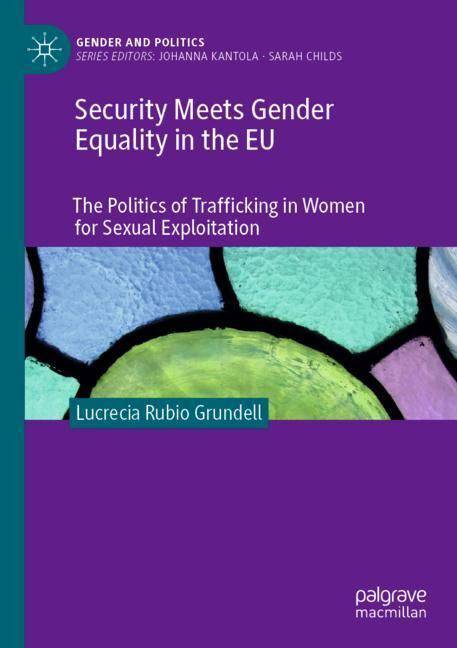
- Afhalen na 1 uur in een winkel met voorraad
- Gratis thuislevering in België vanaf € 30
- Ruim aanbod met 7 miljoen producten
- Afhalen na 1 uur in een winkel met voorraad
- Gratis thuislevering in België vanaf € 30
- Ruim aanbod met 7 miljoen producten
Zoeken
Security Meets Gender Equality in the EU
The Politics of Trafficking in Women for Sexual Exploitation
Lucrecia Rubio Grundell
€ 137,45
+ 274 punten
Uitvoering
Omschrijving
This book explores the triangular dynamics of securitisation and desecuritisation that underpin the EU's approach to trafficking in women for sexual exploitation. That is, the progressive securitisation of trafficking in women for sexual exploitation within the EU's anti-trafficking policies and the existence of two distinct and competing approaches that coexist among feminist struggles against such trend and that largely follow the two opposing views that structure feminist debates on prostitution: a neo-abolitionist approach, on the one hand, that is increasingly defended from within EU institutions, and has therefore become increasingly entangled with the securitisation of trafficking in women; and a sex work approach, on the other hand, that has been largely relegated to the domains of academia and civil society. As such, this book addresses the intersection of security and feminist neo-abolitionism within the EU's anti-trafficking policies, as well as the de-securitising potentialof the anti-trafficking advocacy of both neo-abolitionist and sex worker organisations operating at EU level. This book is unique in that it unprecedentedly brings together three bodies of literature that rarely interact: Critical Security Studies, EU Gender Studies and the feminist literature on prostitution and trafficking in women and demonstrates their fruitful interaction in an extensive empirical analysis of the EU's internal security, violence against women and anti-trafficking policies.
Specificaties
Betrokkenen
- Auteur(s):
- Uitgeverij:
Inhoud
- Aantal bladzijden:
- 246
- Taal:
- Engels
- Reeks:
Eigenschappen
- Productcode (EAN):
- 9783031122118
- Verschijningsdatum:
- 10/12/2023
- Uitvoering:
- Paperback
- Formaat:
- Trade paperback (VS)
- Afmetingen:
- 148 mm x 210 mm
- Gewicht:
- 326 g

Alleen bij Standaard Boekhandel
+ 274 punten op je klantenkaart van Standaard Boekhandel
Beoordelingen
We publiceren alleen reviews die voldoen aan de voorwaarden voor reviews. Bekijk onze voorwaarden voor reviews.











